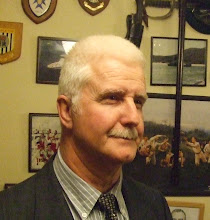When talking about barriers to effective teamwork, one issue that is often raised is conflict. Many of us dislike and avoid conflict, but of course a complete lack of conflict can be an even bigger problem for teams with people reluctant to rock the boat, not daring to think differently and so falling into the "groupthink" trap.
A recent article in the Financial Times addresses the issue thus:
The Challenge of Straight Talking
By Stefan Stern
Lawyers, bankers, accountants and consultants are all after the same thing. No, not cash. That goes without saying. What they dream about is achieving a special status with their clients: that of the Trusted Adviser.
It is lonely at the top, people say. You cannot count on colleagues to give you the unvarnished truth. Professional services firms can make good that shortfall in trust, and give you the brutal facts when others are unwilling or unable to do so.
Some bosses claim to have created a slightly less lonely environment for themselves. Jamie Dimon, chief executive of JPMorgan Chase, has met business leaders who say that they have done just that. “They tell you that you’ve always got to have at least one close colleague who will tell you the truth,” Mr Dimon said at the Harvard Business School centennial conference last week. “Well, if you’ve only got one guy in 10 who will tell you the truth you should fire the other nine!”
Mr Dimon is right. There should be zero tolerance for mealy-mouthed, flannelling, equivocating co-workers. And yet the evidence suggests that there is not enough straight talk at work. Fearing disruptive conflict and bust-ups, we muddle through, bite our tongues, zip the lip.
Robert McHenry, chief executive of OPP, the Oxford-based business psychology consultancy, says that some organisations may be suppressing conflicts that should in fact be allowed to burst out.
“Clients sometimes tell us that their biggest problem is the lack of conflict in their organisations,” he says. “They say that autocratic senior leaders create a culture where people prefer to ‘keep their head down’ and not offer feedback or ideas; the anticipation of conflict inhibits performance.”
This does not mean there never are rows at work – far from it. In fact, conflicts are usually messier because they have not been brought to the surface soon enough. Indeed, we should probably brace ourselves for more not less conflict at work as the world slides into recession. “Der Dalles schlägt sich,” as they used to say in Vienna. “Those who are struggling beat each other up.”
OPP recently surveyed 5,000 employees in Europe and America to discover their attitudes to (and experience of) conflict at work. They found that, on average, each employee spends 2.1 hours a week – roughly one day a month – dealing with conflict in some way.
Managers struggle with this. Some receive training in the kind of communication and mediation skills that can help defuse tension. Others – 7 per cent, according to OPP – turn in desperation to the last resort of the 21st-century manager, the internet.
It’s not all bad news. According to another piece of new (and ongoing) research, a burst of internal aggro might offer the chance to improve your company’s fortunes. Early findings point to the vital role of successfully managed conflict in the development of effective corporate strategy.
In their work with international businesses, the London-based consultancy Cognosis has found that managers can be a little bit daunted by the concept of “challenge”. But those who manage conflict will win greater engagement from their staff and much more “buy-in” as far as strategy is concerned.
How can you use disagreement to your advantage? Conflict should be managed formally rather than in an ad hoc way, Cognosis has found. You don’t want to encourage “water-cooler whingeing”, or a complete free-for-all where barrack-room lawyers with the loudest voices dominate.
In open corporate cultures employees feel able to challenge senior managers. Indeed, their critical views will be actively and regularly sought. “One of the defining characteristics of strategically effective leaders is their commitment to challenge, and their ability to both challenge others and be challenged themselves in a positive and constructive way,” says Richard Brown, managing partner at Cognosis.
On the flight home from a recent trip to the US, I explored at length the musical entertainment options that my carrier had kindly provided. After some uplifting Bach and some satisfying Beatles, I have to admit that my finger hovered momentarily over – I am not proud about this – the “Easy Listening” channel. Reader, I pressed that button. But after one glorious burst of Petula Clark’s timeless “Downtown” –
When you’re alone
And life is making you lonely
You can always go downtown
– I realised that this channel had nothing else to offer me.
And then it struck me. I had made exactly the same mistake Mr Dimon had warned against a day or two earlier. I had opted for Easy Listening, when I should have stuck with the robust truthfulness of Lennon and McCartney or the challenging polyphonics of JS Bach. Tiredness was no excuse. The soft option was all wrong.
In the difficult months ahead managers are going to have to lead by example, and not flinch from conflict. “In bygone days,” the British politician Jo Grimond once said, “commanders were taught that when in doubt, they should march their troops towards the sound of gunfire.” Tin hats on, everyone. By the left, quick, march.
Subscribe to:
Post Comments (Atom)

No comments:
Post a Comment